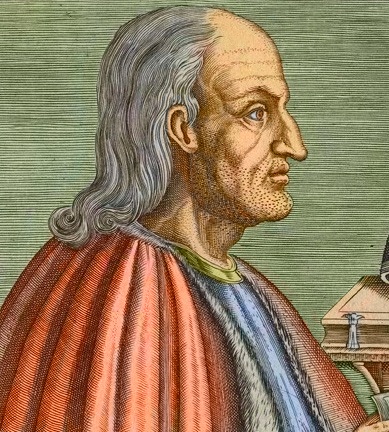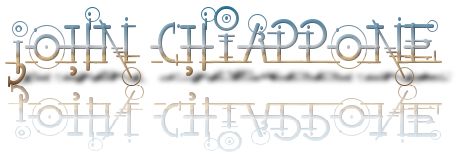|
SCHOLASTICISM
FAITH & REASON
METHOD:
A problem or question is advanced.
Arguments for and against this position are
explored.
A conclusion is reached.
Is it in or outside this world?
Is it in or outside the mind?
Is it matter or mind?
UNIVERSALS:
What makes it the case that a group of things are
similar?
To what do universal terms
refer?
Does dog refer to a collection of similar things?
(Nominalism)
Is it an essence or form? (Realism)
Where do they exist? Are they in
particular?
If they are fictitious, how does
affect knowledge?
FAITH AND REASON:
Should reason lead faith?
Should faith lead reason?
Anselm said:
| |
I do not try,
Lord, to attain Your lofty heights because
my understanding is in no way equal to it.
But I do desire to understand your truth a
little, that truth that my heart believes
and loves. For I do not seek to understand
so that I may believe, but I believe so that
I may understand. For I believe this also,
that unless I believe, I shall not
understand. |
|
WILL AND REASON:
What are the foundations of moral
values?
Does God will something because it is
right? (Intellectualism)
This position limits God's power.
Is something right because God wills
it? (Voluntarism)

Saint Anselm of Canterbury (10331109)
76 years
Archbishop of Canterbury
PHILOSOPHY:
MONOLOGION and PROSOLOGION
Author: Saint Anselm of
Cantebury (1033-1109)
Type of work: Theology
First transcribed: Monologion
1076, Prosologion 1077-1078
The Ontological Argument:
"The fool hath said in his heart, there is no God,"
Psalm 14. To deny the existence of God requires that
you understand the concept. Since God is the Being
than whom no greater can be conceived, and since it
is better to exist in fact than merely in the
imagination, God must exist in fact.
The Weak Argument:
1. God is that than which no
greater can be thought to be (TB)
2. TB exists in intellectu &
in re
3. God exists in intellectu &
in re
In other words:
1. I have an idea of God within my
understanding.
2. God is a being that which no greater
can be conceived.
3. It is greater to exists in reality
than in thought alone.
4. If God, the greatest conceivable being,
exists in the understanding alone, a greater being can
be conceived - one that also exists in reality.
5. To conceive of a greater being than
the greatest conceivable being is a contradiction.
6. The greatest conceivable being must
exist in reality as well as the understanding.
7. Therefore God exists in reality.
In Behalf of the Fool
The monk Gaunilo argued against Anselm In Behalf of
the Fool. Gaunilo claimed that Anselm's argument
fails because it depends on our having an idea of
God. We cannot have any idea of God because God's
nature is wholly inconceivable.
Anselm responds by saying that
the proof does not require a complete understanding
of God. It only requires that we understand that
God is such that no greater can be conceived.
Gaunilo's second objection is
that the argument leads to absurd conclusions. For
example I have an idea of an island of which
no greater island can be thought to be. If it exists
in the mind alone, it would not be the greatest
conceivable island; therefore it must exist in
reality. We call this type of an argument a reductio
ad absurdum. It attempts to show that a position
results in an absurdity.
Anselm's responded by saying that God is the
greatest conceivable thing. This concept refers to
one thing only. Existence is contained in the
essence of only one thing, and it's not an island.
It is not a contradiction to talk about possible
islands, or any other contingent thing, that does
not exist. It is a contradiction to talk about
necessarily existing things that don't exist.
Gaunilo's most devastating
argument is that existence is not a predicate
(property). If we considered existence to be a
property of things, all of predicate logic would
collapse. Unfortunately Anselm hardly seems to be
aware of it. As if the objection had not been
stated, he simply repeats himself; he says that if
we understand a thing, than it is in the
understanding. He should have responded with this
second argument.
The strong argument is as
follows:
1. God is that than which no
greater can be thought to be (TB)
2. TB exists in intellectu &
necessarily in re
3. God exists in intellectu &
necessarily in re
Necessary existence is a predicate if
such a thing exists. Logic of possible, contingent (actual), and
necessary existence is called modal logic.
|
